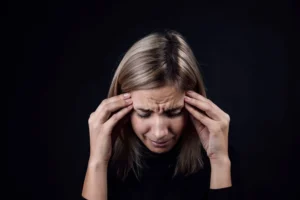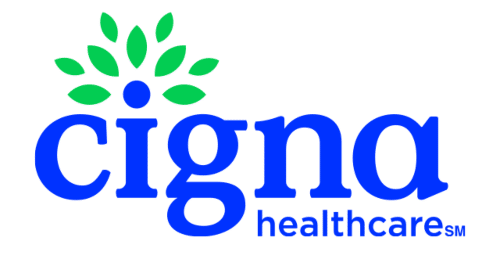After a rough day at work, you find yourself reaching for a drink more often than not. Did you know that mental health and substance abuse often goes hand in hand?
Individuals struggling with mental health disorders search for different ways to cope with their complex symptoms. One of the least healthy ways to do so is by self-medicating.
What do we do after a long stressful day? What are the outlets we look to for stress relief? Keep reading to dive deep into unhealthy outlets and how you can make better choices.
What is Self-Medicating?
Self-medicating is the misuse of drugs or alcohol as a coping mechanism. People with mental health conditions or other health problems often self-medicate to manage their symptoms and improve how they feel.
Forms of Self-Medication
There are a variety of substances individuals might use to self-medicate:
- Alcohol
- Prescription Drugs (painkillers, ADHD medications, etc.)
- Nicotine
- Recreational Drugs (marijuana, cocaine, etc.)
- Food
How Does Someone Develop an Addiction?
Self-medicating can develop into an addiction when what begins as small coping behaviors turn into habits. Here are some examples of these behaviors:
- Someone with crippling anxiety starts to drink to calm their nerves before and during social events
- Individuals with a high-stress job having a drink after a long day at work to unwind
- After sustaining a work-related injury, someone may take painkillers to cope with the pain and the time off of work
- Someone with anxiety taking recreational drugs to help relax or taking sleeping pills to sleep
- Someone suffering from depression takes ADHD medications to stay more motivated and focused on tasks
What can start as a simple, sometimes necessary, action spirals into a problem once it becomes a habit.
How Many People Does This Affect?
It is challenging to find concrete numbers for self-medication alone, as many choose to keep their struggles silent.
According to a 2019 study by the Substance Abuse and Mental Health Services Association, 3.8% of adults in the United States had a substance abuse problem and a mental health disorder. That amounts to 9.5 million people in the U.S. alone.
Why Do People Start Self-Medicating?
There are many reasons why someone may begin self-medicating, many of which are unique to the individual. People use self-medicating as a temporary coping mechanism to manage issues at that moment, but it can stem from a variety of other problems, such as:
- Chronic pain
- Depression
- Grief
- Abuse
- Dysphoria
- Anxiety
- Childhood trauma
- Health issues
The Dangers of Self-Medicating
Self-medicating has many dangers. One of the most significant risks associated with it is that it can develop into profound substance abuse. Substance abuse often leads to drug addiction or alcoholism.
While self-medicating might start as a relief for symptoms of mental health disorders, it can have the opposite result. Over time, it can complicate your current mental health disorders.
For mental health disorders such as schizophrenia, PTSD, depression, and anxiety, substances like alcohol and marijuana can exacerbate these problems. If you’re bipolar and take cocaine, this could worsen your usual symptoms of bipolar disorder.
Self-medicating might lead to changes in the brain for predisposed individuals that cause them to develop more mental health problems. When these behaviors cause new issues to arise, it is counterproductive to eliminate the problems they intended to fix.
Finally, self-medicating prevents individuals from seeking the help they truly need, as they opt for quick fixes. It is damaging to the individual because it does not allow them to address the issue’s root.
Alternative Coping Methods
Instead of reaching for the bottle, there are other ways someone can learn to cope without self-medicating.
Using one or more of these alternatives can boost your mood and reduce symptoms.
Exercise
Exercise is a beneficial activity for those struggling with mental health issues. It increases dopamine in the brain, which makes it a natural mood booster.
Exercise is a way to focus your energy into action rather than self-medicating habits. It gives you something to focus your attention on to help distract yourself from any negative thoughts or feelings.
Seek Help
An underlying problem is often at the root of a self-medicating problem. Seeking professional help can help you work through your mental health disorders to find other ways to cope. Professional services can include therapy or support groups.
Entering a treatment program that caters to individuals struggling with both drugs and their mental health is another good way to seek help and find new coping mechanisms.
Eat a Healthier Diet
Like exercise, eating a balanced and healthy diet can boost your mental health. Even if you’re dealing with an illness, a good diet can strengthen your immune system and put you in a better mindset to help fight it.
Foods to help you fight back:
- Foods rich in Omega 3, such as fish (helps improve brains function)
- Foods rich in Vitamin B, such as leafy greens (help the body produce energy)
- Foods rich in Vitamin C, such as kiwis and Broccoli (help the body’s immune system)
- Oats (packed with essential vitamins such as magnesium, phosphorus, vitamin B1, etc.)
- Grains (high in nutrients and fibers)
- Vegetables
- Lean meats
Stay away from:
- Caffeine
- Large amounts of sugar
- Foods high in fats
- Other stimulants like energy drinks
Just to name a few.
Find a Relaxing Activity
Taking the time to care for yourself by doing something relaxing can help soothe depression and anxiety.
- Massages
- Attend a yoga class
- Journal
- Try meditating
- Walk or jog
- Read
Lean On Your Support System
Whether it’s your family, close friends, or coworkers, lean on them when you’re experiencing a challenging day.
You Can Get Help
If you’re struggling with self-medicating, early intervention is vital to prevent it from growing into something more serious. There are ways to recognize the problem and alternative coping methods to improve your mental health.
If you find yourself in need of serious help, it’s essential to seek treatment sooner rather than later. Contact us today to learn more about our treatment programs or discuss a program tailored to you.













